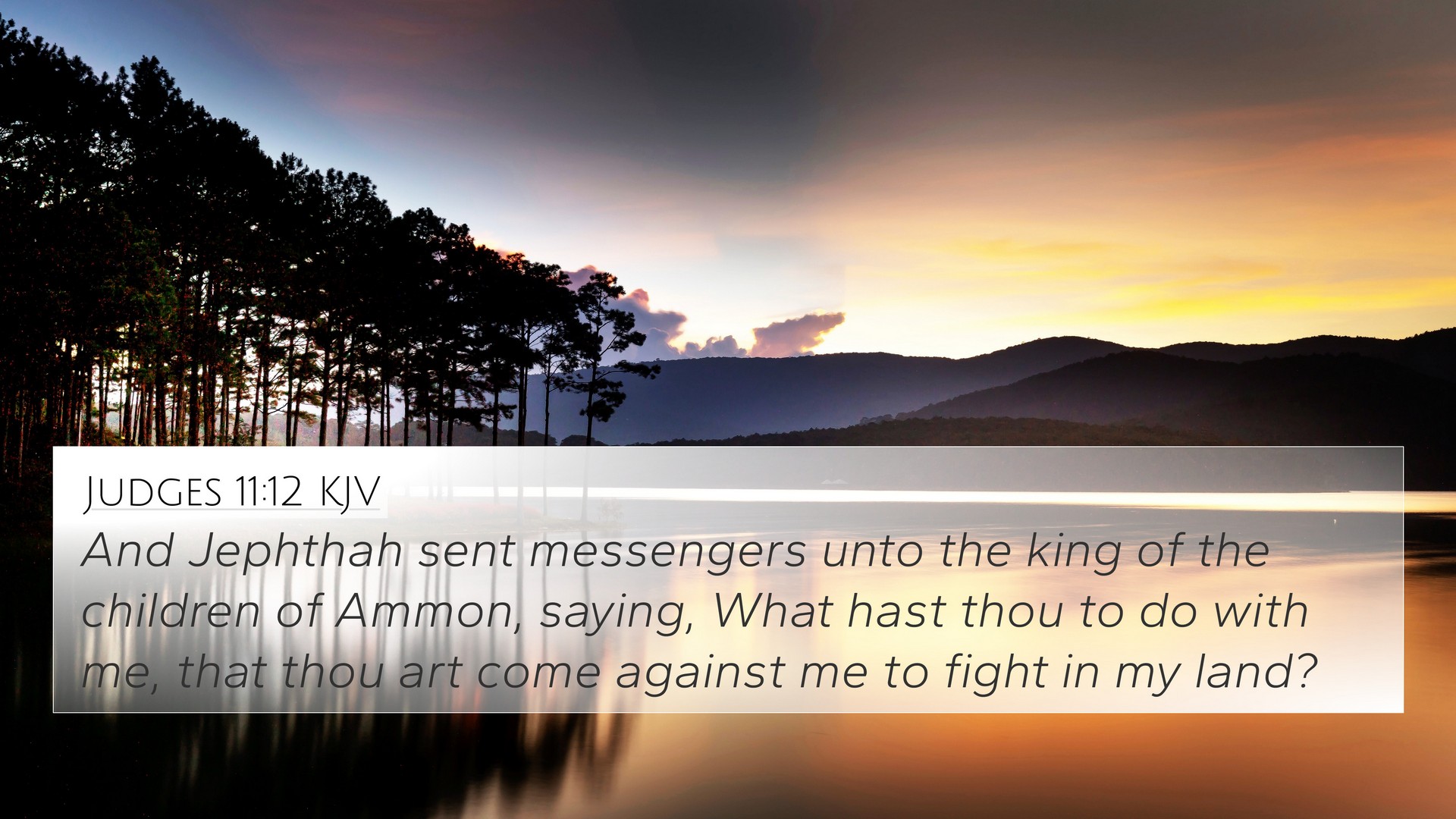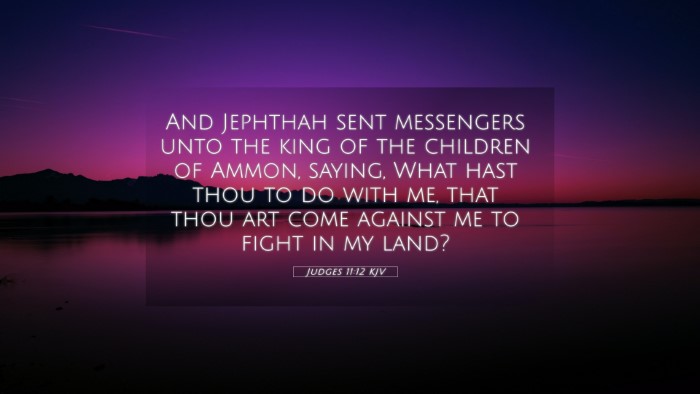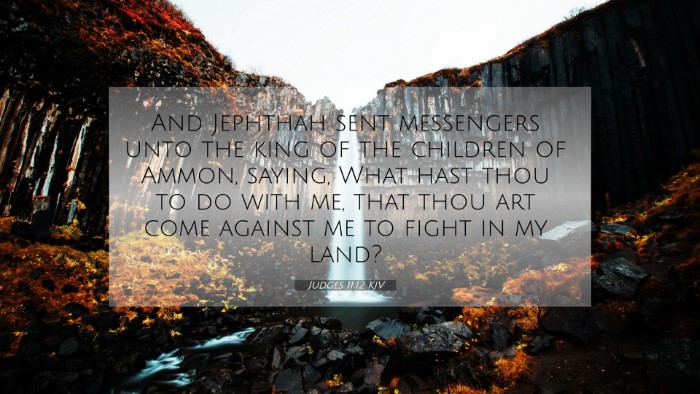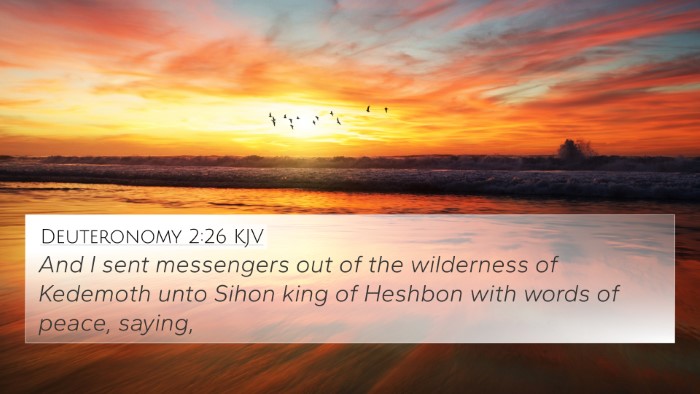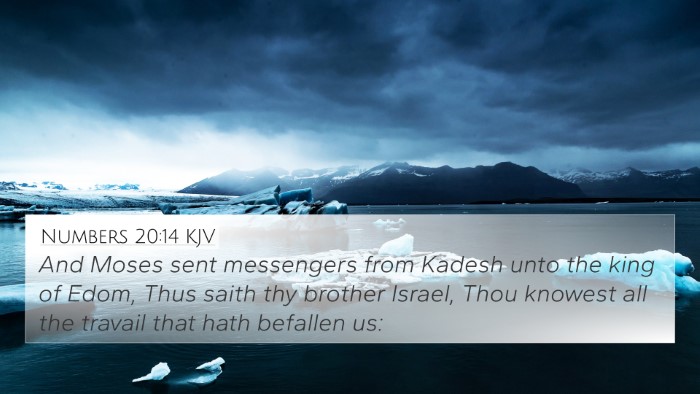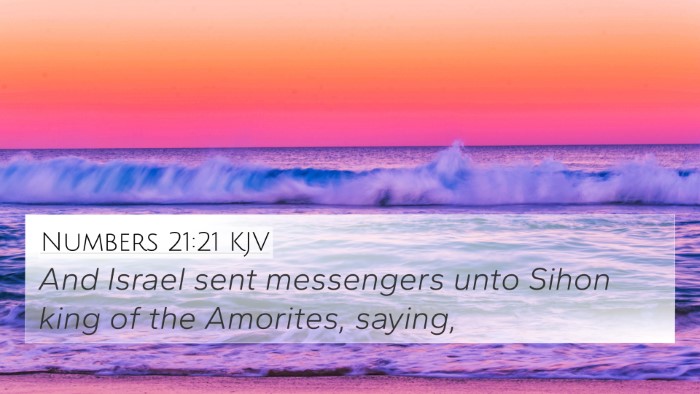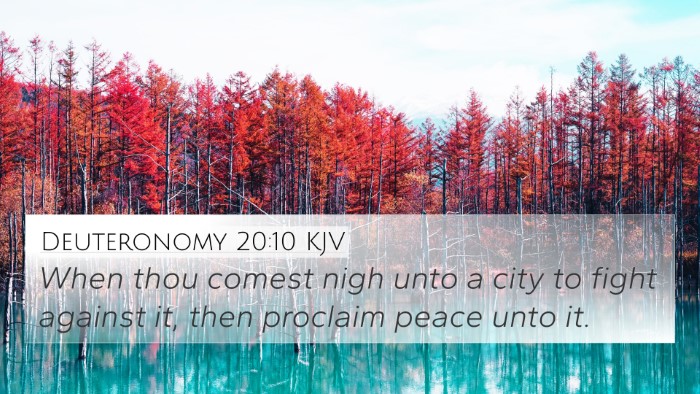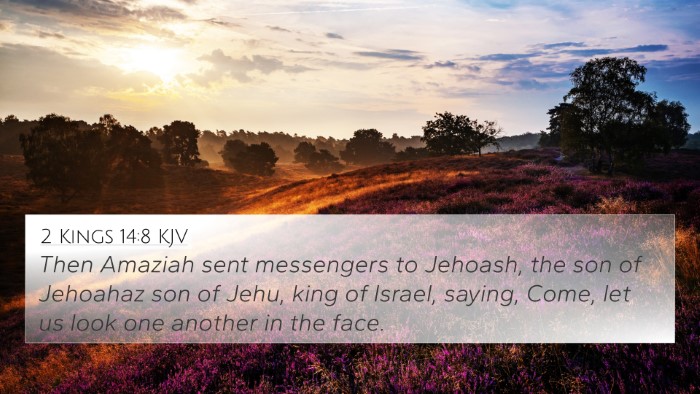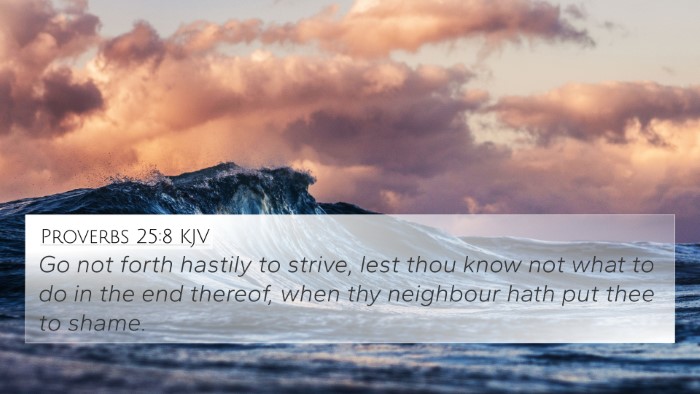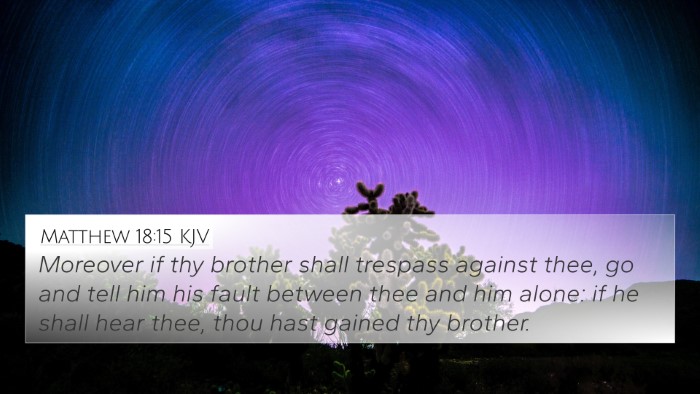Understanding Judges 11:12
Judges 11:12 presents a significant moment in the narrative of Jephthah, the judge of Israel. This verse captures a pivotal interaction between Jephthah and the Ammonite king, setting the stage for the unfolding events that lead to Israel's deliverance and the conflicts that arise in the Promised Land. To gain a deeper understanding of this verse, we will explore its meaning through insights from public domain commentaries.
Verse Context
In Judges 11:12, Jephthah sends messengers to the king of the Ammonites to address the contentious issue of land rights and territory. This chapter represents a broader conflict between Israel and the surrounding nations, particularly focusing on territorial claims and God’s sovereignty in guiding Israel's history.
Commentary Insights
Matthew Henry's Commentary:
Henry emphasizes Jephthah’s diplomatic approach, as he seeks to resolve the conflict through dialogue rather than immediate warfare. This highlights the power of words and treaties in ancient Near Eastern societies. Jephthah's appeal to history — invoking Israel's right to the land — reflects a larger biblical theme of God's provision and guidance for His people.
Albert Barnes' Notes:
Barnes notes the significance of Jephthah’s appeal to a historical context, recounting Israel's journey from Egypt and emphasizing their rightful claim to the land. This historical recounting serves not only as a plea for justice but also demonstrates Israel’s faith in the divine promises made to them. Jephthah’s confidence in God’s past deliverance fortifies his stance before the Ammonites.
Adam Clarke's Commentary:
Clarke points out the importance of Jephthah's reference to the Lord's hand in the affairs of nations. He emphasizes that the battle does not merely concern territorial disputes but signifies God’s overarching governance. This reinforces the idea that believers, like Jephthah, should seek divine guidance and deliverance in their conflicts.
Thematic Connections
The themes within Judges 11:12 can be linked to various biblical narratives and principles. Here are some related concepts:
- Divine Sovereignty: The belief that God governs all aspects of life and history, evident in Jephthah’s reliance on God’s past interventions.
- Conflict Resolution: Approaching disputes through dialogue and reference to history, as demonstrated by Jephthah's negotiations.
- Faith in God: Jephthah’s faith in God's promises underlies his actions, echoing similar sentiment expressed throughout the scriptures.
Cross-References
Judges 11:12 finds connection with several other scriptures:
- Deuteronomy 2:19: Discusses Israel's journey and the relinquishing of land to their neighbors, parallel to Jephthah’s claims.
- Joshua 13:1-6: Talks about the division of land among the tribes, emphasizing God’s distribution and Israel’s rightful ownership.
- Romans 12:18: Advocates for peaceful resolutions among individuals, mirroring Jephthah's diplomatic approach.
- 1 Samuel 8:5: Relates to Israel’s desire for a king, evidence of growing tensions similar to those faced by Jephthah.
- Exodus 23:24: Encourages Israel not to accept the practices of surrounding nations, reflecting on Jephthah’s relationship with the Ammonites.
- Isaiah 41:10: God's reassurance of support strengthens the believer’s faith in confrontation, aligning with Jephthah’s pleas.
- Philippians 4:6-7: Discussion on presenting requests to God in prayer resonates with Jephthah's reliance on God.
Conclusion
Judges 11:12 serves as a powerful reminder of the importance of dialogue, historical context, and faith in resolving conflict. The insights from various commentaries shed light on the relational dynamics at play during Jephthah's confrontation with the Ammonite king. Furthermore, the various cross-references illustrate the unity of biblical themes concerning God’s sovereignty and the call for believers to foster peace amid disputes.
